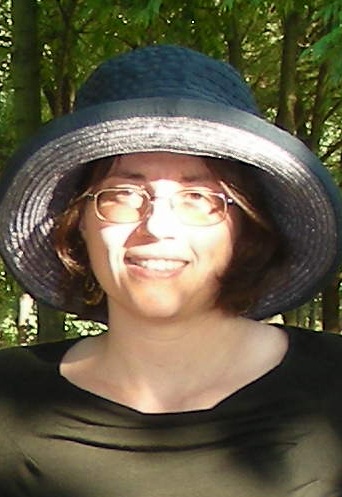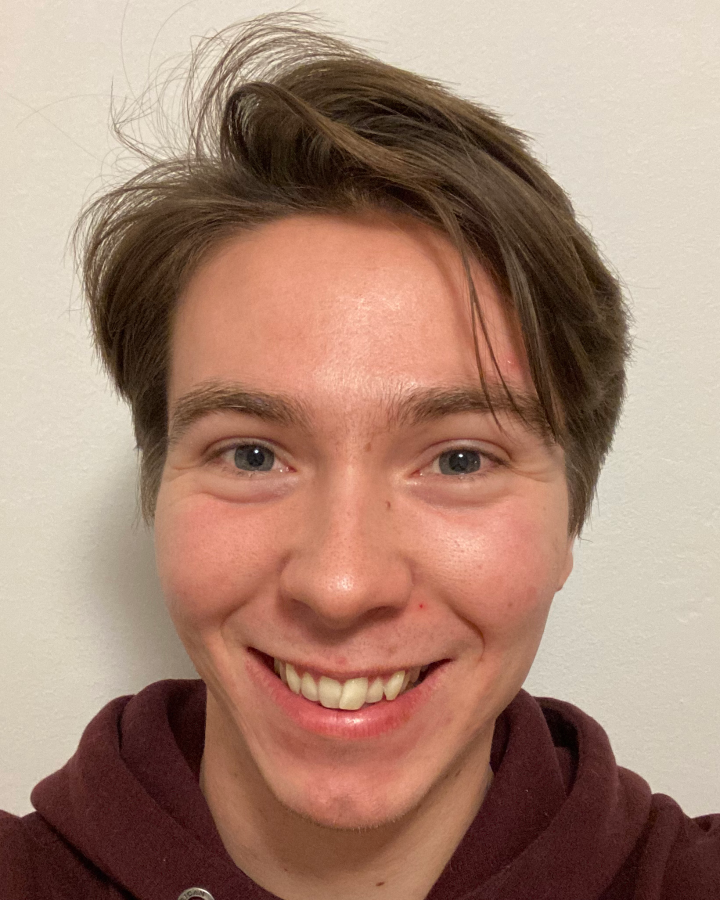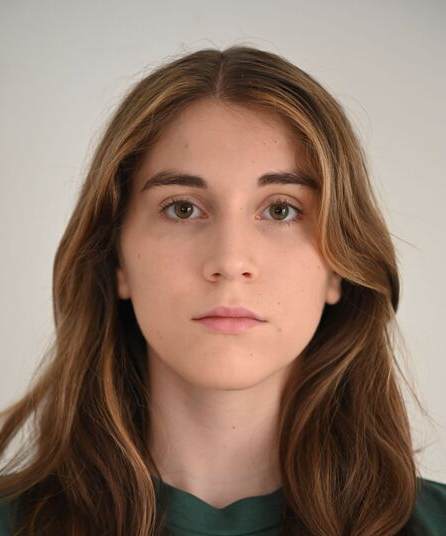Gerti Kappel
O.Univ.Prof.in Dipl.-Ing.in
Mag.a Dr.in techn.
Gerti Kappel
- Email: gertrude.kappel@tuwien.ac.at
- Phone: +43-1-58801-18870
- Office: HC0215 (1040 Wien, Favoritenstrasse 9)
- About:
Gerti Kappel is full professor at the Institute of Information Systems Engineering at TU Wien, chairing the Business Informatics Group. Prior to that, from 1993 to 2001, she was a full professor of computer science (database systems) and head of the Department of Information Systems at the Johannes Kepler University Linz.
From 2016 to 2019, she was a member of the dean’s team of the Faculty of Informatics responsible for research, diversity, and financial affairs. Since the beginning of 2020 she acts as the dean of the Faculty of Informatics at TU Wien.
Her current research interests include Model Engineering, Web Engineering, and Process Engineering, with a special emphasis on cyber-physical production systems. Striving for the unity of research and teaching, she co-authored and co-edited among others „UML@Work“ (dpunkt.verlag, 3rd ed, 2005), „UML@Classroom“ (Springer, 2015), and „Web Engineering“ (Wiley, 2006).
- Orcid: 0000-0002-4758-9436
- Keywords: Process Engineering, Data Engineering, Services Engineering, UML and XML, Business Process Management (BPM), Model Engineering, Workflow Management Systems (WFMS), Web Engineering, Object Orientation, Software Engineering
- Roles: Head of Services, Full Professor
Publications
Keywords: Modell, Versionierung, SYSML, Modellierung, Modellversionierung
Astract: With the increasing popularity and usage of domain specific modeling languages, model versioning is be getting more and more important in software development, especially when model-based development methods come into play. This is also an important aspect for model-based systems engineering. Models and the distributed, collaborative development of models are constantly gaining significance. SysML is a domain-specific modeling language for systems engineering. The open source development platform Eclipse and its outstanding Eclipse Modeling Framework are an excellent base for model-driven software development. The initiative „Collaborative Modeling with Eclipse“ provides a modeling platform, founded on the named technologies and the modeling tool Papyrus, that tries to enable the comfortable working with models in teams. This work tries to improve the results, retrieved from the modeling platform when comparing SysML models. From an analysis of carried out model comparisons, several weak spots in differencing and visualization of those differences were found. Through the development of appropriate extensions, the identified weak spots could be addressed.
Schindler, S. (2018). Sprachspezifische Modellversionierung für SysML [Diploma Thesis, Technische Universität Wien]. reposiTUm. https://doi.org/10.34726/hss.2018.37581
Keywords:
Astract: At the faculty for Informatics, TU Wien, there is a great heterogenity among students regarding their educational requirements, especially concerning prior knowledge of programming. Nevertheless, programming is an essential part of the first year curricula of CS and Business Informatics bachelor studies and it constitutes a base, a tool or content of further courses throughout the further study progress. To support prospective students in programming already prior to their start of studies, a MOOC (massive open online course) on introductory programming has been developed at the Faculty of Informatics at TU Wien. During summer 2017 it has been successfully implemented with a limited participants group of 579 prospective students and a small group of other internal and external test persons. Ongoing evaluations have already shown that the course and its implementation as a MOOC has the significant potential to serve as an additional bridging-course offer to prospective MINT students.
Wetzinger, E., Kappel, G., & Futschek, G. (2017). Studieneinstieg, nicht -ausstieg! TU Freihaus, 44. http://hdl.handle.net/20.500.12708/146946
Model-Driven Systems Engineering: Principles and Application in the CPPS Domain
 Luca Berardinelli
Luca Berardinelli Alexandra Mazak
Alexandra Mazak Oliver Alt
Oliver Alt Manuel Wimmer
Manuel Wimmer
Berardinelli, L., Mazak, A., Alt, O., Wimmer, M., & Kappel, G. (2017). Model-Driven Systems Engineering: Principles and Application in the CPPS Domain. In Multi-Disciplinary Engineering for Cyber-Physical Production Systems (pp. 261–299). Springer. https://doi.org/10.1007/978-3-319-56345-9_11
Keywords: UML, fUML, code generation, code verification, execution semantics, model-driven engineering
Astract: The concept of abstraction is the foundation of the evolution of computer science. Complex concepts and techniques are composed to a level of abstraction on which new techniques can be built. The evolution of programming languages is no exception. The assembly language was an abstraction of binary machine code instructions, making them interpretable by humans. Up to the nineties, many programming languages required the user to manually allocate and deallocate memory - a task that is carried out by all modern languages without the knowledge of the user. Model-driven engineering (MDE) is a software development methodology that introduces models as the central element, raising the level of abstraction beyond programming languages. Software systems described by the means of modeling languages have certain advantages: they are easier to understand, better to maintain as the described system changes over time, and they can be translated to be used on different target platforms. The latter is carried out by model transformations and code generators. UML is a standardized modeling language that is widely used to express the structure and behavior of systems. The transformation of systems described by means of UML concepts into executable code has been a tedious task for many years. This is because of the lack of formal semantics, which specify how models that conform to the abstract syntax of the modeling language have to be interpreted, which required the developers of code generators to rely on individual interpretations of the meaning of the modeling concepts. This circumstance was addressed with the fUML standard published in 2011. It covers the formal specification of the semantics of a subset of UML consisting of class modeling, activity modeling and action language concepts. Along with the standard, a conforming virtual machine was introduced that allows the user to execute fUML compliant models. However, up until today, no code generator compliant to fUML has been develped impeding the automated generation of implementation artifacts from fUML models for different target platforms. The first goal of this thesis is to elaborate and implement a code generation approach that generates executable code from fUML compliant models. The main requirement of the generator is to produce code that, when executed, behaves equivalent to the fUML model from which it was generated. The second goal of this thesis is to develop a component that verifies the correctness of the code generated from an input model by comparing its execution to the execution of the model carried out by the fUML virtual machine. Both goals aim to provide support for one of the key features of MDE for fUML: the automated transformation from a higher level of abstraction to a lower level. Thereby, an increase in productivity and efficiency for users of fUML shall be achieved.
Fischer, U. (2017). Code generation for fUML [Diploma Thesis, Technische Universität Wien]. reposiTUm. https://doi.org/10.34726/hss.2017.24073
Towards model driven reverse engineering to UML behaviors - from C# code to fUML models
 Martin Lackner
Martin Lackner Tanja Mayerhofer
Tanja MayerhoferKeywords:
Astract: Model Driven Engineering (MDE) aims to raise the level of abstraction in software engineering by moving from code-centric approaches to model-centric ones, which means that the main artifacts in the software development process are models. Thereby, MDE can be used for both creating new software as well as modernizing or extending existing software. The latter usage scenario of MDE requires the reverse engineering (RE) of existing software into higher-level models. The main aim of RE is to extract information of existing software and obtain a more abstract view for further analysis. Model Driven Reverse Engineering (MDRE) is the application of MDE techniques to perform RE tasks. While many MDRE approaches for reverse engineering the structure of a system already exist, there is a lack of approaches for also reverse engineering the behavior of a system, especially detailed behavior descriptions including algorithmic details of the software. This work proposes an approach for overcoming this gap by using MDE techniques to reverse engineer the detailed behavior of a system. The goal of this work is to elaborate a mapping between code written in the general purpose programming language C# and UML models conformant to fUML, by using an MDRE approach. The OMG standard Semantics of a Foundational Subset for Executable UML Models or foundational UML (fUML) is chosen because it is possible to precisely and completely define the behavior of a software system with fUML models. Thus, fUML is a suitable candidate for serving as target language for MDRE approaches that aim to reverse engineer the detailed behavior of a software system. A prototype has been developed in this thesis, which is able to reverse engineer code written in C# to models conformant to fUML, and store them in the UML modeling environment Enterprise Architect.
Lackner, M. (2017). Towards model driven reverse engineering to UML behaviors - from C# code to fUML models [Diploma Thesis, Technische Universität Wien]. reposiTUm. https://doi.org/10.34726/hss.2017.29725
Teaching
Project in Computer Science 1
Semester: 2025S; Nr: 194.145; Type: PR; Hours: 4.0; Language: if required in English; View on TISSSeminar for Master Students in Business Informatics
Semester: 2024W; Nr: 180.779; Type: SE; Hours: 1.0; Language: English; View on TISSResearch Seminar
Semester: 2024W; Nr: 188.446; Type: SE; Hours: 2.0; Language: if required in English; View on TISSLiterature Seminar for PhD Students
Semester: 2024W; Nr: 188.512; Type: SE; Hours: 2.0; Language: German; View on TISSModel Engineering
Semester: 2024W; Nr: 188.923; Type: VU; Hours: 4.0; Language: English; View on TISSBachelor Thesis for Informatics and Business Informatics
Semester: 2024W; Nr: 188.926; Type: PR; Hours: 5.0; Language: if required in English; View on TISSScientific Research and Writing
Semester: 2024W; Nr: 193.052; Type: SE; Hours: 2.0; Language: German; View on TISSProject in Computer Science 1
Semester: 2024W; Nr: 194.145; Type: PR; Hours: 4.0; Language: if required in English; View on TISSSustainability in Computer Science
Semester: 2024W; Nr: 194.155; Type: VU; Hours: 2.0; Language: English; View on TISSProjects
Digitale Kompetenzen @ Parlament
Name: DKP; Title: Digitale Kompetenzen @ Parlament; Begins On: 2021-04-01; Ends On: 2021-09-30; Context: Parlamentsdirektion; View Project WebsiteIFC-Roundtrip und Plangrafiken
Name: IFC-Roundtrip und Plangrafiken; Title: IFC-Roundtrip und Plangrafiken; Begins On: 2019-01-01; Ends On: 2020-06-30; Context: tbw solutions ZT GesmbH; View Project WebsiteVienna Informatics Living Lab
Name: Vienna Informatics Living Lab; Title: Vienna Informatics Living Lab; Begins On: 2018-08-01; Ends On: 2019-07-31; Context: Vienna Business Agency (WAW); View Project WebsiteMulti-Paradigm Modelling for Cyber-Physical Systems (MPM4CPS)
Name: MPM4CPS; Title: Multi-Paradigm Modelling for Cyber-Physical Systems (MPM4CPS); Begins On: 2014-10-01; Ends On: 2019-05-31; Context: European Cooperation in Science and Technology (COST); View Project WebsiteCOSIMO: Collaborative Configuration Systems Integration and Modeling
Name: COSIMO; Title: COSIMO: Collaborative Configuration Systems Integration and Modeling; Begins On: 2014-01-01; Ends On: 2017-05-30; Context: Vienna Business Agency (WAW); View Project WebsiteARTIST: Advanced software-based seRvice provisioning and migraTIon of legacy Software
Name: ARTIST; Title: ARTIST: Advanced software-based seRvice provisioning and migraTIon of legacy Software; Begins On: 2012-10-01; Ends On: 2015-09-30; Context: European Commission; View Project WebsiteDARWIN - Model-driven Development and Evolution of Semantic Infrastructures
Name: DARWIN; Title: DARWIN - Model-driven Development and Evolution of Semantic Infrastructures; Begins On: 2012-03-01; Ends On: 2015-02-28; Context: Austrian Research Promotion Agency (FFG); View Project WebsiteTROPIC: A Framework for Model Transformations on Petri Nets in Color
Name: TROPIC; Title: TROPIC: A Framework for Model Transformations on Petri Nets in Color; Begins On: 2009-03-01; Ends On: 2012-08-31; Context: Austrian Science Fund (FWF); View Project WebsiteAMOR: Adaptable Model Versioning
Name: AMOR; Title: AMOR: Adaptable Model Versioning; Begins On: 2009-02-01; Ends On: 2011-09-30; Context: SparxSystems Software GmbH; View Project WebsiteDevelopment of a WEB-based database for the global administration of CAN-Data
Name: Rosenbauer-DB; Title: Development of a WEB-based database for the global administration of CAN-Data; Begins On: 2008-09-01; Ends On: 2009-04-30; Context: Rosenbauer; View Project WebsiteModel-Driven Web Engineering net
Name: MDWEnet; Title: Model-Driven Web Engineering net; Begins On: 2006-12-01; Ends On: 2010-12-31; Context: Johannes Kepler Universität Linz; View Project WebsiteTRACK and TRADE: Creating a Data Mart for Floating Car Data
Name: TRACK™ Title: TRACK and TRADE: Creating a Data Mart for Floating Car Data; Begins On: 2006-10-01; Ends On: 2008-09-30; Context: European Commission; View Project WebsiteModelCVS: A Semantic Infrastructure for Model-based Tool Integration
Name: ModelCVS; Title: ModelCVS: A Semantic Infrastructure for Model-based Tool Integration; Begins On: 2006-01-01; Ends On: 2007-12-31; Context: ARIKAN Productivity Group GesmbH; View Project WebsiteZELESSA: An Enabler for Real-time Business Intelligence
Name: ZELESSA; Title: ZELESSA: An Enabler for Real-time Business Intelligence; Begins On: 2006-01-01; Ends On: 2007-06-30; Context: Österr. Nationalbibliothek; View Project WebsiteAdmina.at goes Austria
Name: Admina.at; Title: Admina.at goes Austria; Begins On: 2005-12-01; Ends On: 2007-09-30; Context: Federal Ministry of Science and Research (bm:wf); View Project WebsiteWomen's Postgraduate College for Internet Technologies
Name: WIT; Title: Women's Postgraduate College for Internet Technologies; Begins On: 2003-01-01; Ends On: 2007-12-31; Context: European Commission; View Project WebsiteTeam
Business Informatics Group, TU Wien
Professors
Christian Huemer
Ao.Univ.Prof. Mag.rer.soc.oec.Dr.rer.soc.oec.
Dominik Bork
Associate Prof. Dipl.-Wirtsch.Inf.Univ.Dr.rer.pol.
Gerti Kappel
O.Univ.Prof.in Dipl.-Ing.inMag.a Dr.in techn.
Henderik Proper
Univ.Prof. PhDResearchers
Aleksandar Gavric
Univ.Ass. MEng. B.Eng.
Galina Paskaleva
Projektass.in Dipl.-Ing.inDipl.-Ing.in BSc

Marianne Schnellmann
Univ.Ass.in BSc MScMarion Murzek
Senior Lecturer Mag.a rer.soc.oec.Dr.in rer.soc.oec.
Marion Scholz
Senior Lecturer Dipl.-Ing.inMag.a rer.soc.oec.
Miki Zehetner
Univ.Ass. DI Bakk.rer.soc.oec. MScSyed Juned Ali
Univ.Ass. BSc MScStudent-Staff

Florian Fankhauser
Projektass. Dipl.-Ing.Julia Smejkal
BSc






